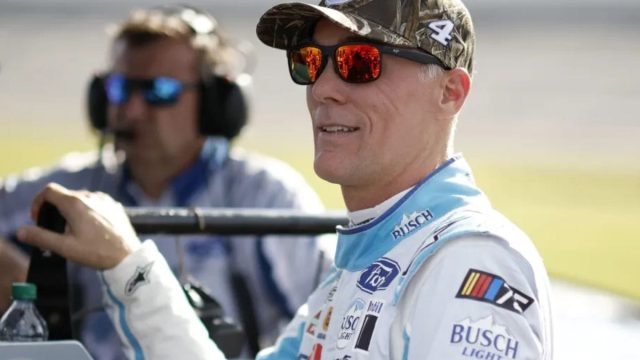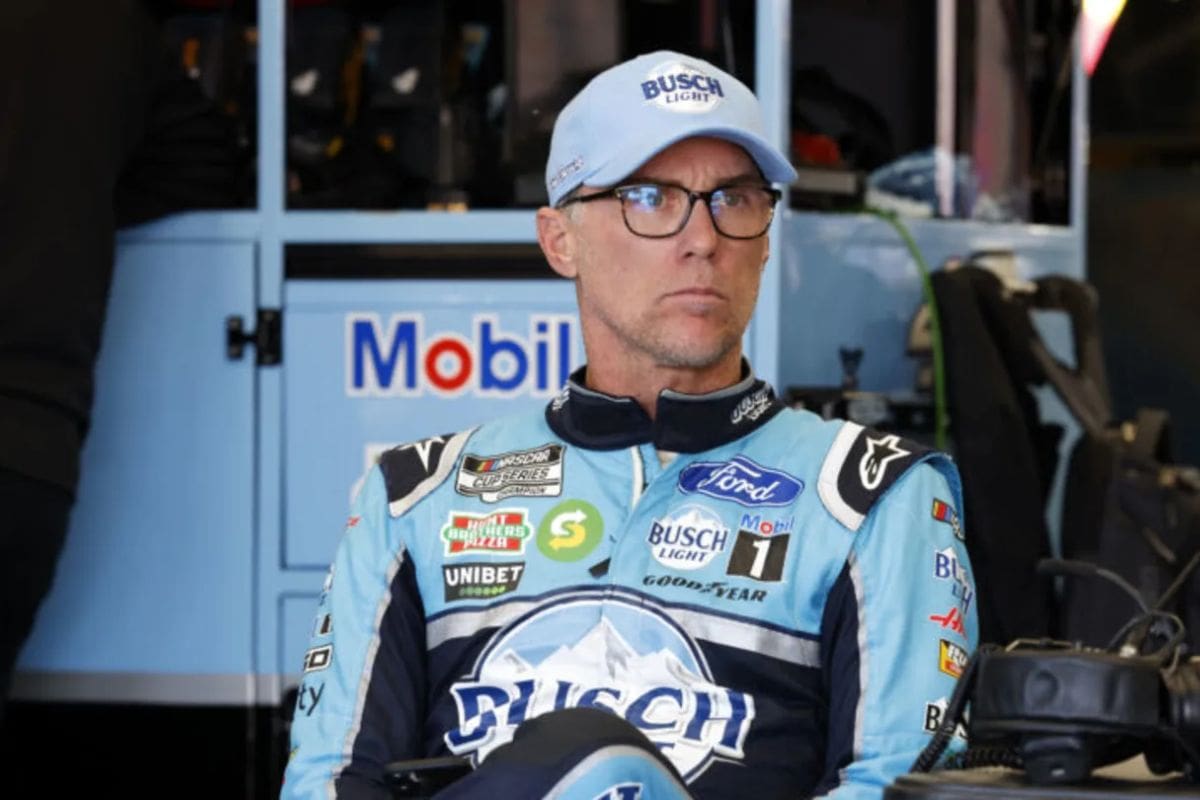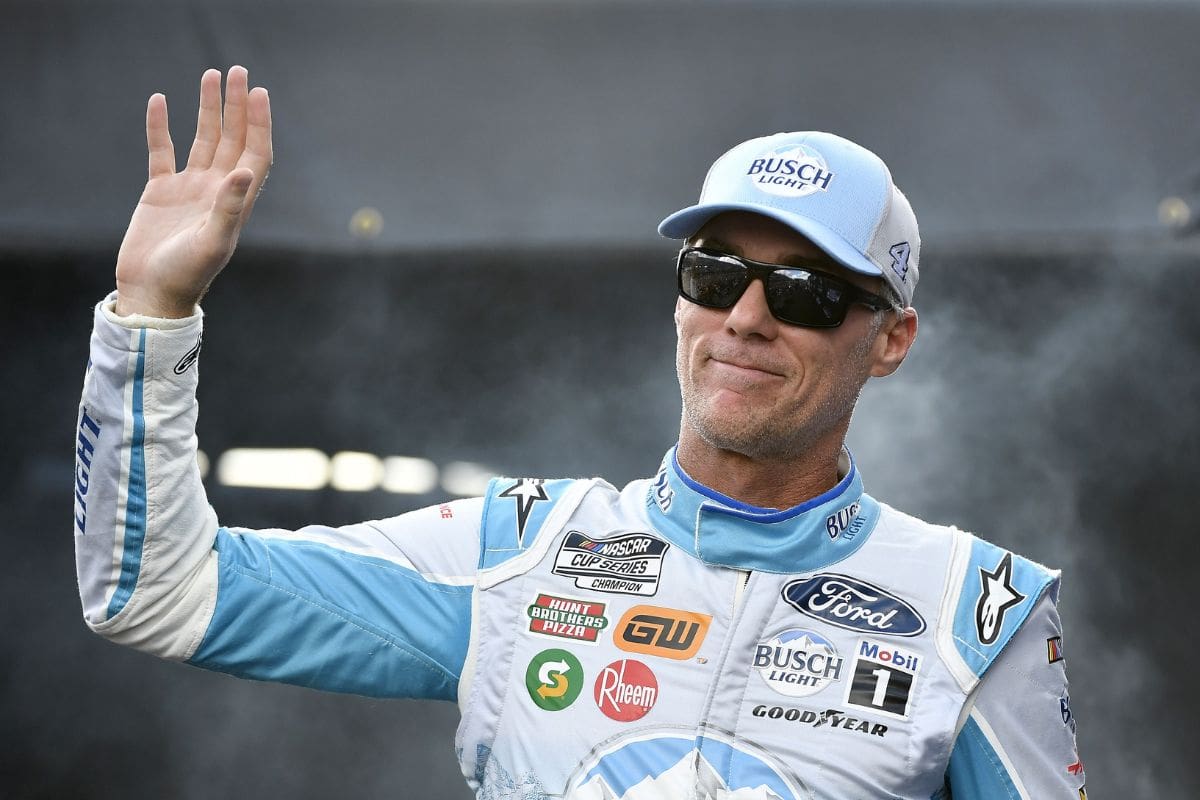Kevin Harvick Questions NASCAR Playoff Integrity: Kevin Harvick‘s recent critique of the NASCAR playoff system raises fundamental questions about the criteria for eligibility and its implications for competitive integrity. By suggesting that the current approach, which allows drivers to qualify through a single race win, may dilute the value of consistent performance, Harvick challenges the essence of meritocracy in the sport. This discourse invites a deeper examination of how inclusivity and excellence can coexist within the framework of NASCAR’s evolving landscape. What changes, if any, could restore the balance between opportunity and achievement?
Key Highlights
- Kevin Harvick raises concerns that the current playoff system undermines meritocracy by allowing lesser-performing drivers to qualify based on just one race win.
- The elimination of the top-30 points requirement risks overshadowing the accomplishments of consistently high-performing drivers throughout the season.
- Harvick emphasizes that including underperforming drivers may dilute the competitive essence of the NASCAR playoffs, questioning if the best talent is truly represented.
- The revised criteria may lead to multiple lower-ranked drivers entering playoffs based on sporadic victories, compromising the integrity of the competition.
- There is a call for reevaluating eligibility criteria to prioritize consistent performance over isolated wins, ensuring the playoffs reflect true competitive hierarchy.
Kevin Harvick’s Concerns About the Playoff System
In his recent podcast episode, Kevin Harvick articulated substantial concerns regarding the integrity of NASCAR’s playoff system. His critique centers on the criteria for playoff eligibility, particularly questioning whether the current system effectively showcases the season’s top talent or merely introduces an element of unpredictability.
Harvick’s skepticism is rooted in the recent decision to eliminate the top-30 points requirement for drivers to qualify for the playoffs. He posits that this change undermines the meritocratic essence of the sport, suggesting it may lead to playoff entries that do not accurately reflect the best performers throughout the season. Instead of rewarding consistent excellence, the revised criteria could potentially allow drivers with lesser achievements to occupy coveted playoff spots, thereby diluting the competition.
The veteran driver raises a significant question: Are playoff positions being squandered on those who may not have proven the requisite skill and performance? By allowing a broader range of drivers to compete in the playoffs, the system risks overshadowing the accomplishments of those who have excelled over the course of the season.
This concern echoes a broader sentiment among stakeholders who value competitive integrity and fairness in sports. Harvick’s insights are paramount for ongoing discussions about the structure of NASCAR’s playoff system.
As the sport evolves, it remains imperative to evaluate whether the changes serve to improve competition or unknowingly create disparities that could diminish the comprehensive quality of the championship. His commentary invites a critical examination of the balance between accessibility and excellence in NASCAR’s playoff framework.
Impact of Recent Changes on Playoff Eligibility
Recent adjustments to NASCAR’s playoff eligibility criteria have sparked considerable debate over their potential ramifications for the sport’s competitive landscape. The revised system allows drivers to qualify for the playoffs based on a singular race win, regardless of their overall performance during the season. This change has enabled drivers like Harrison Burton, who currently stands 34th in points and trails markedly behind others, to secure a playoff spot due to his victory at Daytona.
“Well I just, I just wonder what the balance is between, do we want our best 16 cars?Or do we want it to be exciting? This is exciting. And I agree with everything that’s going on and this is not anything against Harrison Burton, this is not anything against Daniel Suárez but are those our best 16 cars that we’re going to have racing for the championship?Or does it matter?”-(kevin)
Critics, including veteran driver Kevin Harvick, question whether this approach undermines the integrity of the competition. Harvick articulated his concern by asking whether the focus should be on fielding the best 16 cars or prioritizing excitement in the playoff format. He highlights the inherent tension between these two objectives, suggesting that while the inclusion of underperforming drivers may generate narrative intrigue, it risks diluting the competitive essence of the playoffs.
The implications of this shift extend beyond individual drivers; they raise critical questions about the general fairness and meritocracy of the playoff system. By allowing less competitive drivers to participate, the integrity of the postseason may be compromised, leading to concerns about whether the championship is truly representative of the best talent in the sport.
As NASCAR navigates these recent changes, it must carefully consider the balance between creating an entertaining spectacle and maintaining a robust and competitive playoff structure that rewards consistent performance.
Integrity of the Playoffs and Competitive Balance
Concerns regarding the integrity of NASCAR’s playoffs and competitive balance have intensified as the revised eligibility criteria allow drivers with limited regular-season success to compete. Kevin Harvick has voiced apprehensions regarding this shift, questioning whether the current format genuinely showcases the best talent in the sport.
By permitting drivers who may finish markedly lower in points standings to enter the playoffs based solely on isolated victories, the system risks diluting the competitive edge traditionally associated with NASCAR’s premier event.
Harvick’s concerns center on the potential presence of multiple drivers ranking in the thirties or twenties in points, suggesting that their inclusion could undermine the essence of the playoffs. The integrity of a playoff system is inherently tied to its ability to reflect the true competitive hierarchy of the sport, rewarding consistent performance throughout the season rather than isolated moments of success.
When lower-ranked drivers qualify for the playoffs, it raises questions about the fairness and legitimacy of the competition. This approach may lead to a scenario where the playoff field is not representative of the best-performing cars, thereby compromising the excitement and integrity that fans expect.
Ultimately, the challenge lies in striking a balance between honoring individual race victories and maintaining a competitive structure that highlights the most skilled competitors across the season. As NASCAR navigates these complex dynamics, the ongoing dialogue around playoff integrity will be essential in shaping the future of the sport.
Harvick’s View on Underdog Victories
Many fans appreciate the thrill of underdog victories in NASCAR, yet Kevin Harvick raises considerable questions about their implications for playoff integrity. While the excitement surrounding unexpected wins is undeniable, Harvick’s critique centers on the potential dilution of competition in the playoffs. He argues that the current playoff structure may allow lesser-performing teams, characterized by their inability to consistently finish in the top tier, to secure playoff spots based solely on singular race victories.
“That’s my point. As a top-10 team just because they haven’t won should that mean their season should be completely lost when you have a 30th-something place car make the playoffs and kick a top-10 guy out that could make a run in the playoffs? Because the 21 is not making a run in the playoffs, the 99 is not making a run in the playoffs. There are just some of those guys who have won a race, Austin Cindric’s not making a run in the playoffs. I just, I think, are we wasting spots?”-(kevin)
Harvick highlights the predicament faced by top-10 teams that, despite their consistent performance throughout the season, may find themselves ousted from playoff contention by teams that struggle to maintain competitiveness. He specifically points to instances where drivers from teams like the 21 and 99, who are unlikely to contend effectively in the playoffs, gain entry merely through victory, thereby sidelining more deserving candidates.
This raises a critical question: Are such placements in the playoffs justified if they do not reflect the overall capabilities exhibited throughout the season?
Harvick’s perspective emphasizes the necessity for a reevaluation of the playoff eligibility criteria. By prioritizing consistent performance over sporadic victories, NASCAR could guarantee that the playoff field more accurately represents the top talents in the sport.
As the debate continues, it becomes clear that while underdog stories enrich the narrative of racing, the integrity of the playoffs should remain paramount, safeguarding the competition’s essence and guaranteeing that the best drivers have the opportunity to compete for the championship.
News in Brief: Kevin Harvick Questions NASCAR Playoff Integrity
Kevin Harvick’s criticisms of the NASCAR playoff system highlight notable concerns regarding the balance between inclusivity and meritocracy. The current eligibility criteria, which permit underperforming drivers to qualify based on a single race victory, potentially undermines the achievements of consistently high-performing competitors. A reevaluation of the playoff structure may be necessary to guarantee that it accurately reflects the competitive nature of the sport and honors the true talent within NASCAR.
ALSO READ: Kevin Harvick Urges NASCAR to Investigate Daniel Suarez’s Terrifying Fire at Daytona




